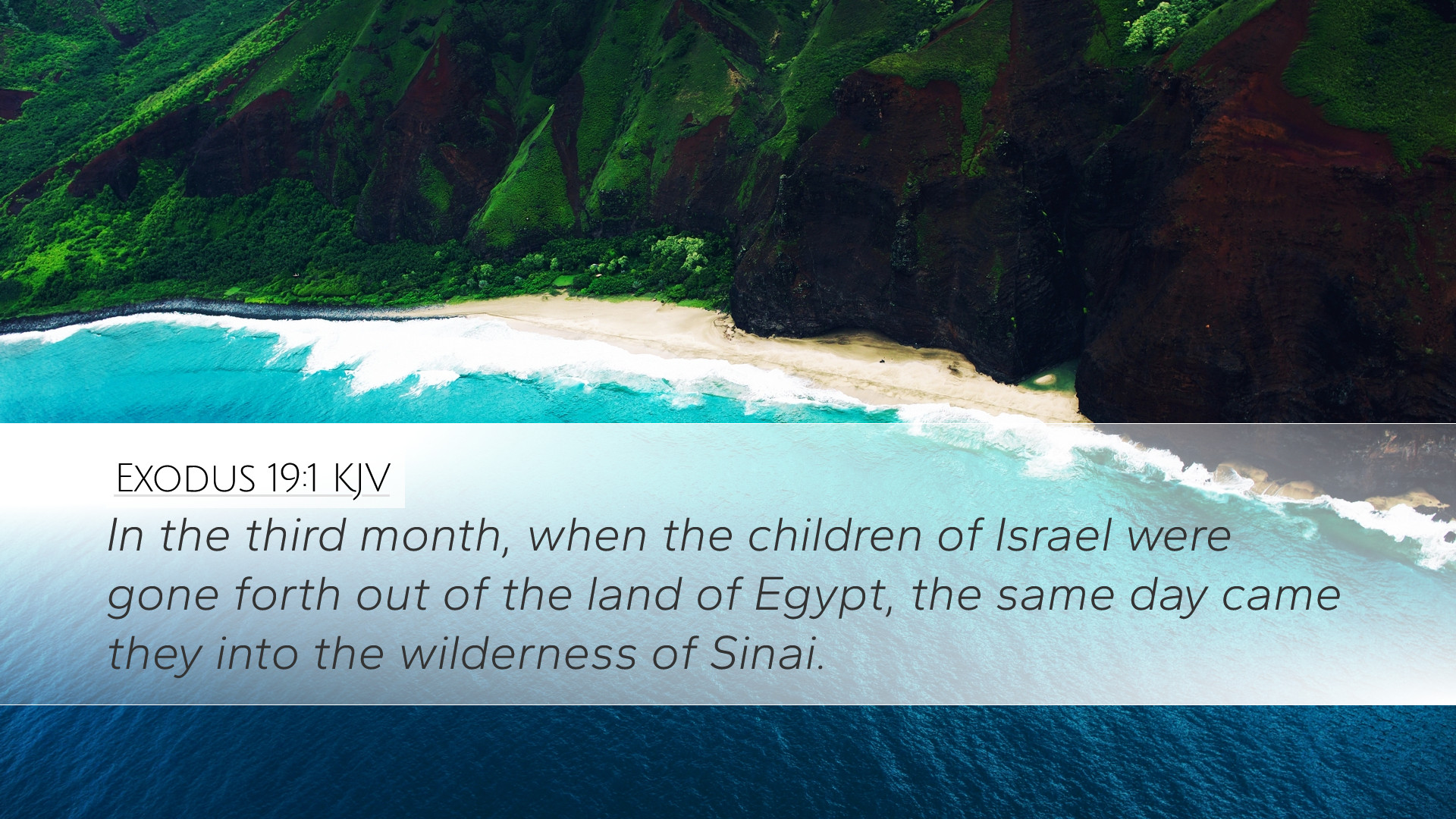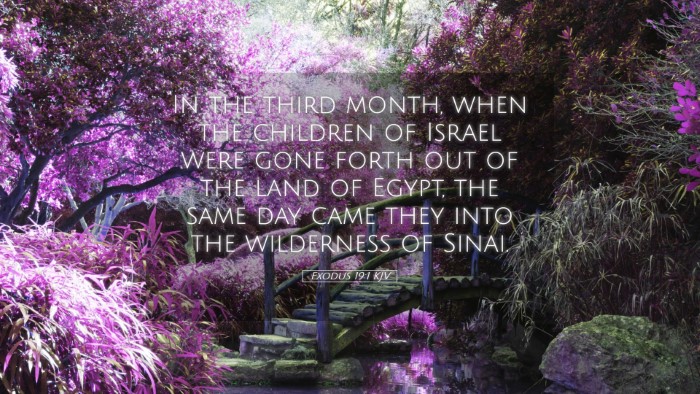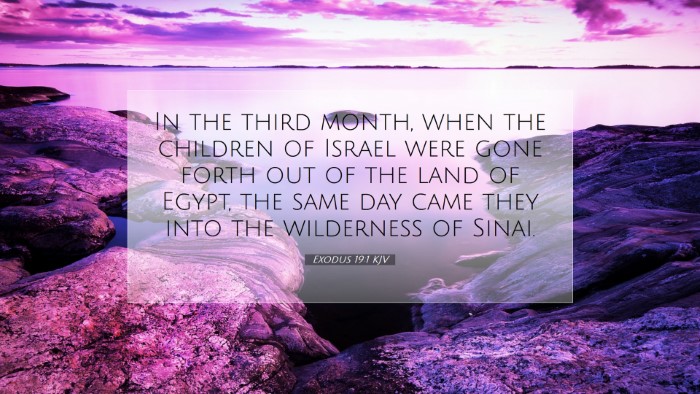Exodus 19:1 - Commentary Insights
Bible Verse: "In the third month after the children of Israel had gone out of the land of Egypt, on the same day they came to the wilderness of Sinai."
Contextual Background
The verse occurs shortly after the deliverance of the Israelites from Egyptian bondage, a pivotal moment in biblical history. The journey from Egypt to Mount Sinai represents both a physical and spiritual transition for the people of Israel. It is essential to understand the significance of this milestone as they prepare to receive God's Law.
The Date and Timing
Matthew Henry highlights the importance of the timing noted in this verse. The reference to "the third month" indicates the Israelites were not merely wandering but were on a divinely orchestrated journey. The time frame after the exodus signifies God's faithfulness in fulfilling His promises to His people, as this period was critical for the establishment of their covenant identity.
Significance of the Third Month
- Remembrance: This mention serves as a reminder of God’s mighty acts in delivering Israel from slavery.
- Preparation: The third month sets the stage for what is to come. It is a time of preparation for receiving God's law and establishing His covenant.
- Fulfillment: Emphasizes the fulfilment of God's promise to bring them into freedom within a specific timeframe.
The Wilderness of Sinai
Adam Clarke elaborates on the geographical significance of Sinai, a desert region that reflects both desolation and divine encounters. The wilderness serves as a backdrop against which the magnitude of God's presence and law will be revealed. The precipice of revelation is vital for understanding God's intentions for His people.
Symbolism of the Wilderness
- Separation: The wilderness is a place apart, signifying God’s desire to separate His people for a special purpose.
- Testing: This environment presents both challenges and opportunities for growth in faith and trust.
- Revelation: The wilderness setting underscores the impending revelation of God’s law, which will shape their identity.
Theological Implications
Albert Barnes focuses on the transformational nature of this moment. The arrival at Sinai represents more than a geographical milestone; it encapsulates the theological importance of covenant relationship. The people thus far have been delivered from slavery, but now they are called to obedience and holiness, setting the stage for a deeper bond with God.
Covenant and Law
- The Call to Holiness: God’s attraction to Israel in the wilderness is meant to draw them into living out their covenant with Him.
- Community Formation: The giving of the Law will forge a unified identity grounded in God’s statutes, preparing them for the Promised Land.
- Experience of Divine Presence: The wilderness will become the site of profound encounters with God, setting the tone for obedience and worship.
Lessons for Today
This verse serves as a reminder to contemporary believers of the journey from bondage to freedom and the importance of preparation for receiving God's guidance. The wilderness experiences, though challenging, are often where we encounter God in transformative ways. For pastors, students, and theologians, the insights from Exodus 19:1 call for reflection on the nature of divine timing, the setting for revelation, and the communal responsibilities of believers under God's covenant.
Application Points
- Embrace the Journey: Recognize the spiritual journeys we undertake often involve preparation and transformation.
- Find God in the Wilderness: Seek to understand the lessons of faith that emerge from life's challenges.
- Understand Our Call: Reflect on what it means to live in covenant with God today and how we can foster community around shared beliefs.
Conclusion
Exodus 19:1 is not just a historical marker; it is a rich theological text that invites reflection on our relationship with God. The comments from Henry, Clarke, and Barnes weave a tapestry of understanding that speaks to the heart of God's plan for redemption and covenantal living through His people. As we delve deeper into this passage, let us be encouraged to engage with the wilderness experiences of our lives and to prepare our hearts to receive the Law of God that continually shapes our identities as His chosen people.


